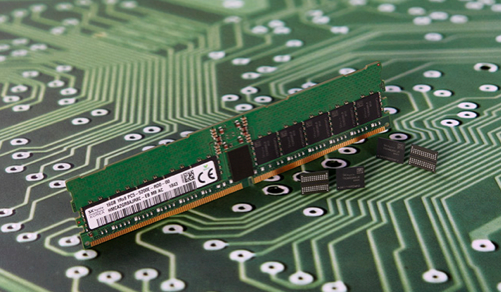According to the financial results released on July, Samsung Q2 quarterly profit plunged by 53% mainly caused by falling price of memory. Samsung expected that there is uncertainty in business in the rest of the year owing to customers in the data center market adjusting Inventory, weak demand for memory chips and remained factors falling prices.
Despite the uncertainty over memory prices and the Japanese government's restrictions on key semiconductor materials, Samsung has not easily curtailing production and saying it will not cut production unless non-artificial reason.

Changes in the price of memory have been concerned for some time. There are people who hold various opinions on its price. Some think the price will go down while others are optimistic about it, which depends on where they stand. At present, some memory manufacturers are bullish about spot price of memory on the reason of Japan-South Korea dispute. However, contract price of memory, which accounts for 90% of the market, has not risen.
According to a recent report from DRAMeXchange, spot prices of memory increased by 24% in July, the first rebound in memory prices in 10 months.
But spot price of memory account for small part of the market. Memory contract price fell by 10.5% instead of increasing in July. The average price of DDR4 8GB fell to $25.50 from $28.50 in June.
It is on account of marketing demand that the price of the memory contract did not rise but continued to fall. DRAMeXchange points out that the global smartphone market will decline by 5% this year, PC market will also decline by 4.8%, and the data center market, which was expected to grow by 3.9%, has been adjusted to zero growth. Terminal demand is not hot enough, so there is no room for contract prices to rise.
Some memory manufacturers take measures to reduce production in order to prevent the decline of memory prices. The production is mainly the last generation of production process or itself is the production process conversion caused by the production, the memory capacity is not significantly reduced.
In other words, although some manufacturers said they would cut production to create the possibility of an imminent shortage of memory, they did not actually cut production. After all, nobody dare to really reduce production in the declining market. Once a manufacturer cut production, other manufacturers will immediately grab the market.
One of the most important factors affecting the recent increase in the spot price of memory is that Japan's control of photoresist, hydrogen fluoride and other materials may cause damage to the production of Samsung, SK hynix and other Korean companies. But it didn't happen. The fact that the Korean company agreed to lower the contract price of the memory shows that the impact of the matter was not as big as advertised. After all, Japan's policy still has a 90-day buffer, which leaves time for South Korean government and companies to negotiate with Japan. In the same time, restrictions on material exports have also affected Japanese companies.